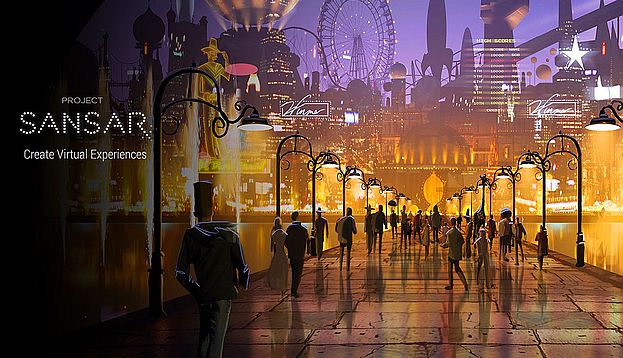Linden Lab is a developer that’s no stranger to creating virtual worlds, as its simulation Second Life has managed to attract a large audience. But now it’s looking to expand those ideas into a new universe: virtual reality.
Variety reports that the developer is hard at work on a new virtual reality program for the Oculus Rift and other devices under the code name Project Sansar. With it, the company hopes to go leaps and bounds over what its original product offered in terms of immersion.
Said CEO Ebbe Altberg about the project, “Second Life hit the ceiling at the hobbyist level,” with slightly more than one million active users a month upon launch, dropping down to just 900,000 for this year.
With that, Altberg and company are looking to improve upon the virtual world, based on lessons learned from Second Life. One big part of this is economics. “Land in Second Life is quite expensive,” Altberg explained. With Sansar, the team hopes of lower real estate taxes and increase sales taxes, so that people can find an easier way to create a place of living in this new world.
But perhaps the most noteworthy feature for the forthcoming project will be about creating an individual experience for each user, based on Linden Lab’s tech. With that, marketers and brands will have a key opportunity as well, with the ability to create their own VR experiences for others to be deep-linked to, through websites and third party apps. “Second Life is a platform dressed as a product,” said Altberg. “The experience is the primary brand” when it comes to Sansar, with a platform in which other companies can build.
With that, Altberg considers Sansar a virtual take on the popular blogging site WordPress, letting others come in and create as they please without needing a large budget for custom programming. Altberg is also looking to enhance the experience with popular 3D software, including products from Maya, Blender and Sketchup, among others.
As for when Sansar will arrive, Altberg explained that a beta is set to launch by the end of 2016, depending on the popularity of various VR headsets and what direction Linden Lab wants to take the experience. But the experience could be wide open, dependent on what consumers and companies alike would want it to be. “It’s gonna start from the beginning,” he explained.

